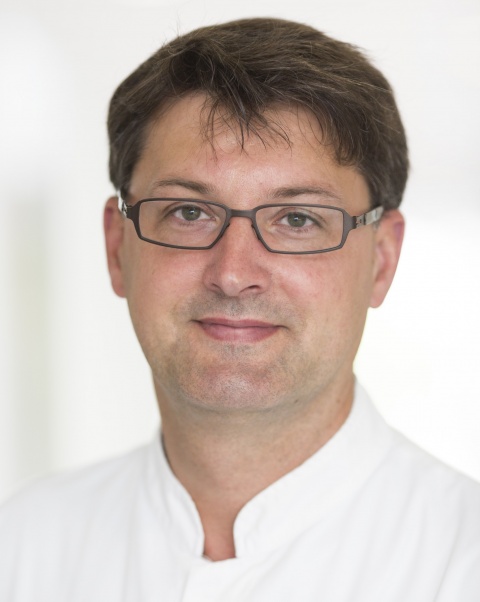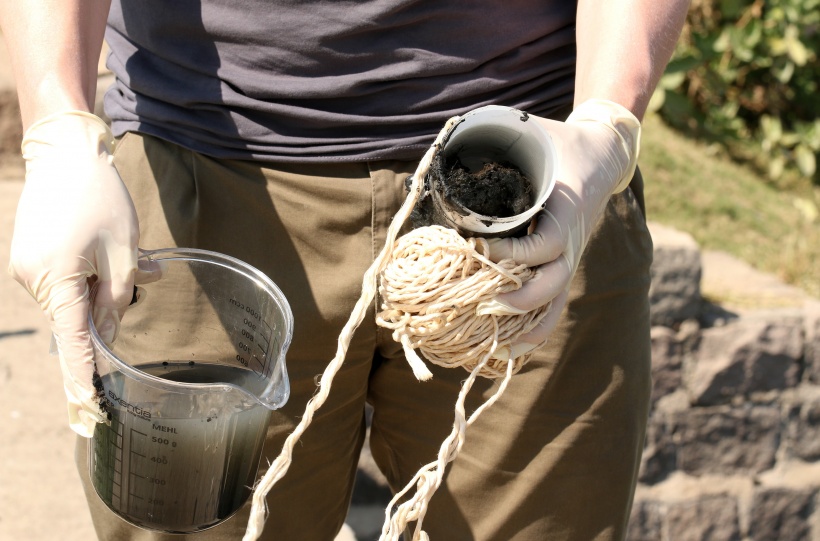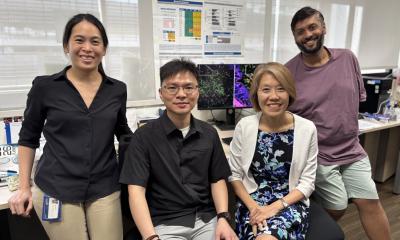Article • Fighting infections
‘We are sitting on a ticking time bomb’
Multidrug-resistant organisms (MDRO) are keeping infection specialists worldwide on their toes. One of these specialists travelled all the way from Leipzig to India to gain insights in one of the sources of the problem.
Report: Katrin Schreiter
Dr Christoph Lübbert, infection specialist at University Hospital Leipzig, Germany, is deeply concerned about the global risk multidrug-resistant bacteria are causing – well knowing that the problem is anything but new. Between 2010 and 2013, his very institution, Leipzig University Hospital, suffered, up to then, the largest known and highly alarming outbreak of KPC (Klebsiella pneumoniae carbapenemase-producing bacteria) in Germany.
A fatal chain of events

A 66-year-old male patient had been transferred from a hospital on the Greek island of Rhodes to University Hospital Leipzig. The patient, who needed mechanic ventilation, was initially admitted to the hospital‘s ICU. Later, he was moved to a general ward, at a point when the exact type of pathogen the patient had acquired abroad was not yet microbiologically determined. The situation spiralled out of control: in the ensuing months patients primarily at the interdisciplinary surgical ICU were diagnosed with infections.
Spreading of the pathogen, from patient to patient, most likely via staff hands and exacerbated by contaminated surfaces, is thought to be the most likely cause of the extended outbreak, which was only stopped after an internal task force strictly enforced a combat strategy. The commonly used antibiotics did not yield the desired results; in short, the most effective weapon in the fight against this pathogen had turned blunt. Forty-two of the 100+ infected, mostly severely ill patients died, seven of them most likely as a direct consequence of the KPC infection.
‘Back then we saw what happens when all of a sudden certain antibiotics don’t work any more – and we learnt how decisively we have to react in such a situation,’ says Dr Christoph Lübbert who since then has focused his clinical research on multi-drug-resistant bacteria and considers University Hospital Leipzig to be well prepared for infection outbreaks.
A few months ago, the 46-year-old physician joined a team of investigative journalists from different German media on a trip to Hyderabad in India to examine industrial wastewater near large pharmaceutical companies that provide the most important antibiotics for the global market.
In India antibiotics abuse – in human as well as in veterinary medicine – is widespread
Christoph Lübbert
Eighty to 90 percent of all antibiotics are being produced in India and China. ‘In more than 95 percent of the samples taken at a total of 28 sites we found multidrug-resistant bacteria with important resistance mechanisms such as ESBL or carbapenemase-production,’ Dr Lübbert explains and adds that ‘Almost all environmental samples taken at a total of 16 sites contained relevant levels of antibiotics and antimycotics.’
A sample from a drainage ditch in the industrial district of Patancheru-Bollaram contained 237 mg/l of the antifungal substance fluconazole. ‘This is 20 times more than the maximum level allowed in the blood of severely ill patients,’ Lübbert reports and points out that this is ‘the highest level of a pharmaceutical that has been detected in the environment – ever.’ ‘In India antibiotics abuse – in human as well as in veterinary medicine – is widespread’ according to Dr Lübbert, ‘There are already many resistant pathogens – but if on top of that antibiotics are released into the environment we are making a ticking time bomb even deadlier: we create multidrug resistances.’
For some infections acquired in India there is no effective therapy any more. ‘Basically no antibiotic will work,’ the physician noted. One study found that in India every year 60,000 new-borns die of MRD bacteria. This problem is not going to be limited to India. ‘No matter where new resistances develop, they travel fast due to patients, food stuff and travellers moving around – and due to migrant birds.’

For Lübbert this is a global issue, which requires a global action plan: ‘When we procure pharmaceuticals from emerging countries we have to have independent auditors check whether the environment is being contaminated.’ This kind of transparency, the expert says, is currently not being provided since pharmaceutical companies can continue to obfuscate production conditions. It seems, Dr Lübbert conjectures, that financial yield takes priority over collateral damages such as destroyed environment. ‘We have to react, and if push comes to shove we have to be able to close the European market for products that were manufactured under questionable conditions.’
‘At the same time we need new and better antibiotics,’ Lübbert urges, taking the pharmaceutical industry to task. But he knows that pharmaceutical research and development is a slow process: ‘It usually takes 10 to 15 years from the lab to approval.’
While in Germany the situation is far from being as bad as in India, things have to change here as well, Lübbert warns. ‘We have to make sure that antibiotics are not being released in the environment – and that they are not being used indiscriminately. Many physicians are much too quick to prescribe antibiotics, and this also holds true for veterinarians, particularly in the field of industrialised livestock production.’
These practices have serious consequences. ‘As soon as bacteria are put under evolutionary pressure by antibiotics, they form resistances.’ Today, there are two or three antibiotics that are effective against extremely multi-drug resistant organisms – not enough. ‘We are running out of time,’ Lübbert says and adds he hopes that the G20 summit in Hamburg, where India as well as China will be represented, will yield results. National antibiotics action plans are on the summit agenda as well as transparency in pharmaceutical production and guidelines for physicians and veterinarians.
Profile:
Biology and medicine graduate Christoph Lübbert MD PhD is currently Director of the Department of Infection Medicine and Tropical Medicine at Leipzig University Hospital in Germany. In 2016, he received the Internal Medicine Prevention Award from the German Society for Internal Medicine (DGIM).
27.09.2017





